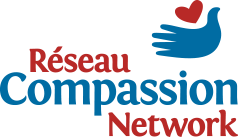Michelle Tomchak, Coordinator for Supported Independent Living, understands the importance of connection for everyone receiving services and supports at St.Amant. “We focus on making connections with people who aren’t affiliated to St.Amant,” she explains. “It’s about true community inclusion and ending the segregation of people with disabilities. People with developmental disabilities want to play a meaningful role in their communities, just like everyone else.”
For a group of Indigenous people supported by St.Amant, that connection can also be a powerful way to re-engage with their culture and learn more about their history, their families and their traditional ways. “We had a woman in particular who was already quite active in the Indigenous community at St.Amant,” Tomchak reveals. “She wanted to become an Elder and be recognized in the community at large. We started exploring how we could make that happen for her.”
After some research and a few cold calls, Tomchak connected with Anish Corp and Cedar Lake Ranch, two organizations offering educational programming to Indigenous people. “We received a quote for a series of workshops, and it was nearly $40,000,” she says. “We knew she couldn’t afford that, and we wondered where we could find the funding. Then we heard about the Inspiration Grant from Réseau Compassion Network.”

The grant encourages front-line staff to apply for funding of up to $50,000 to launch an innovative or much-needed project or program. Tomchak, who was a Team Leader at the time, was encouraged to apply by her supervisor and her application was successful. The funding was used to organize a series of workshops that would be available to those supported by St.Amant who were seeking to deepen their knowledge of Indigenous practices.
The woman who inspired the grant application has been on a road to discovering her cultural heritage. “She’s definitely a survivor of intergenerational trauma,” Tomchak explains. “She had lost a lot of connections to her family and she discovered many relatives in her thirties. It’s been a journey for her and we were walking alongside her as best we could. But many of us are not Indigenous, and we knew we needed outside resources to properly support her cultural and spiritual needs.”
Tomchak confirms that once the workshops were announced, it quickly became apparent that many others at St.Amant were walking the same path. “They’re searching for who they are as Indigenous people and this grant has allowed them to do that in a much more meaningful way,” she says.
Tomchak shares that seeing a different side of those they support is important for staff, as well. “Staff attend to learn alongside them, and we’re seeing whole new sides to people that we didn’t know existed,” she reveals. “We’ve seen a woman know all the words to a drum song. We’ve had a man request we find him a place to do a sweat. Because of these workshops, we’re able to not only support but truly know them in new and different ways, in accordance with their culture and values.”


The workshops have been an overwhelming success, garnering between 10 and 20 people per session, plus their support workers. “What has been so wonderful to see is how much people already know and how much more they want to learn,” Tomchak explains. “When a facilitator asks questions about why things are done or how things are done, those we support know the answer. This is their chance to truly live their culture in a way that they cannot with staff who are non-Indigenous. It’s so impactful and so important. We hope we can find a way to do this again in the future.”

